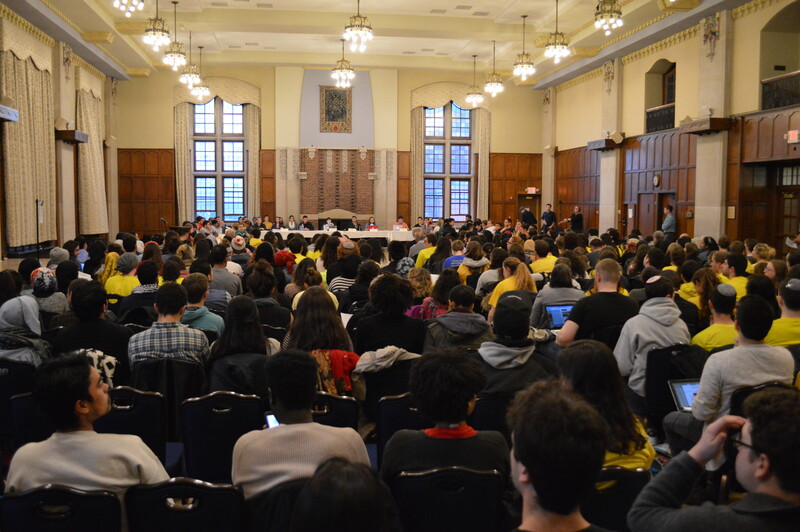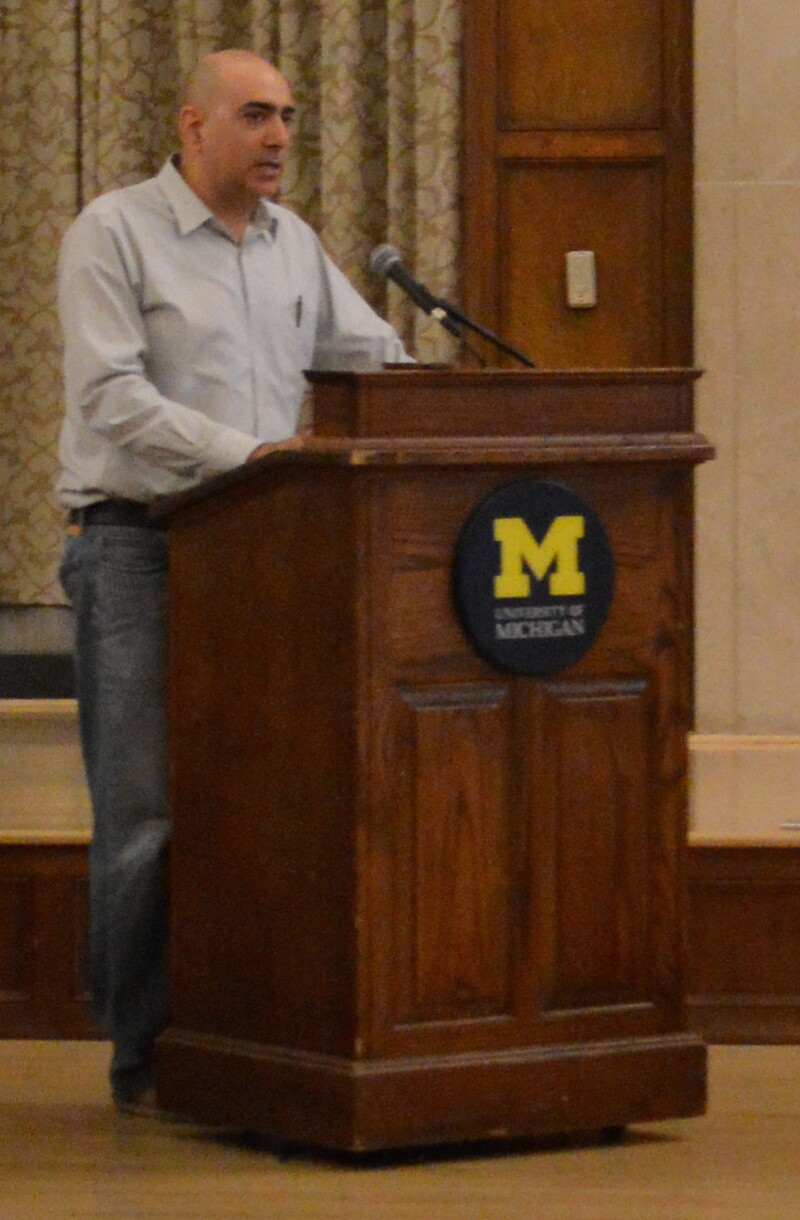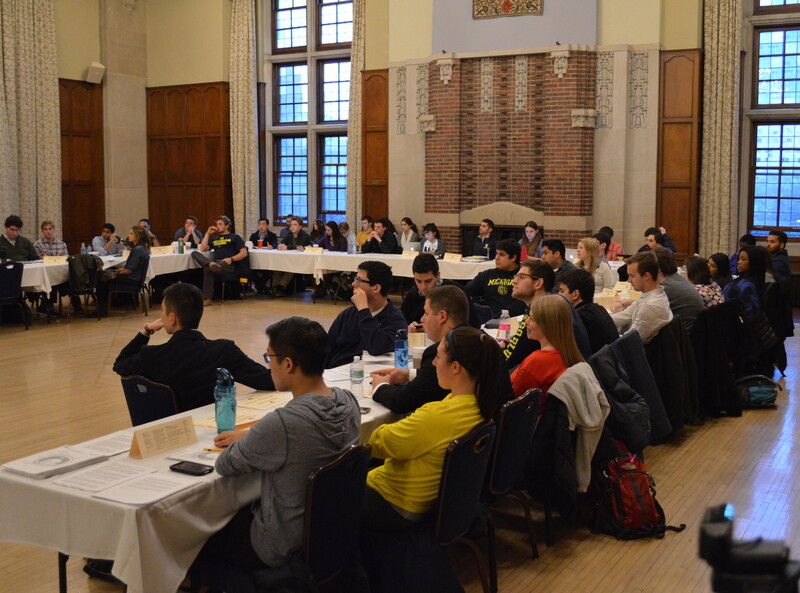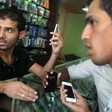Activism and BDS Beat 1 April 2015

Efforts to get the University of Michigan student government to vote for divestment from Israeli occupation failed last night.
The University of Michigan organization Students Allied for Freedom and Equality (SAFE) introduced a divestment resolution last week following last year’s high profile divestment effort. The new resolution was voted down by the Central Student Government with a 15-25 vote after more than four hours of discussion and debate Tuesday night.
Last year the initial resolution SAFE brought was “tabled indefinitely” by the student government, leading to a week-long sit-in and protest by University of Michigan students. The protestors successfully moved the student government to open discussion and bring the resolution to a vote at the next meeting. The student government voted down the 2014 resolution 9-25 with five abstentions, despite a broad network of support from campus organizations and even The Michigan Daily, the university’s student newspaper.
SAFE prepared for this year’s divestment resolution through two full semesters of “organizing education and awareness” on campus, said Palestinian student Danielle Rabie. Rabie described to The Electronic Intifada how SAFE combined teach-ins such as “LGBTQ oppression and pinkwashing in Israel and Palestine” and “Gaza 101,” with direct action. A mock checkpoint was set up in a central student thoroughfare on campus to bring the reality in Palestine to the broader campus audience.
SAFE reached out to student groups on campus, especially “those representing marginalized identities,” solicited public comments, conducted opinion surveys and inquired about groups on other campuses that successfully passed divestment resolutions. In Rabie’s words, SAFE “did as much as we could to make everything definitive, clear, concise and accessible.”
Human rights abuses
In the end they submitted a resolution that called for the student government to request that the university regents form a committee to investigate whether certain companies (including United Technologies, Boeing, Caterpillar and G4S) were involved in human rights abuses in Palestine and, if so, to ensure the University of Michigan divests funds from those firms.

Ali Abunimah spoke in favor of divestment.
SAFE brought The Electronic Intifada’s co-founder Ali Abunimah as a guest speaker to address the student government on the topic of divestment. He addressed several of the questions that were later raised by opponents of #UMDivest, especially those relating to consensus, prospects for positive change in Palestine under the current Israeli leadership and the false description of the Jewish student body as single-minded on Palestine.
Abunimah noted that while a successful divestment effort calls for some kind of consensus, “You can never allow the excuse of consensus to give bigots a veto over necessary social change.”
Rabie expanded on this idea, noting that for the purposes of the resolution, “consensus simply constitutes that a sufficient amount of students care enough about an issue to send it to the regents.”
Abunimah was followed by three anti-divestment speakers: two students and University of Michigan history professor Victor Lieberman, who was also a speaker at last year’s divestment debate.
He began by saying he was “not happy to be” at the meeting and said he opposed the resolution. He then offered his intepretation of the Zionist colonization of Palestine. He placed much of the blame for Palestinian suffering on Palestinians themselves, using the familiar trope of “Palestinian rejectionism” and what he termed “Palestinian maximialism” — the latter referring to desire for sovereignty over historical Palestine.
Four-hour debate
Amongst several erroneous claims, the history professor claimed that “from 1949-1967 Israel was content to remain in its new borders.” In fact, during this period, Israel colonized demilitarized zones, launched frequent raids into the Jordanian-occupied West Bank and the Egyptian-occupied Gaza Strip and, in 1956, invaded and planned to annex Egypt’s Sinai Peninsula.
The guest speakers were followed by community discussion of “reciprocal speakers” in which students supporting and opposing the resolution alternated in addressing the student government. This was followed by debate, amendments, questions from student government members to the resolution’s sponsors and finally, more than four hours later, a vote.

The student government listening to Ali Abunimah speak in favor of divestment.
Divestment opponents continually appropriated language from anti-oppression politics to express concern about the potential implications of a successful resolution. In anti-oppression work, “safe spaces” are those that seek to greatly circumscribe oppressive power dynamics (such as homophobia, transphobia, white supremacy and misogyny). These spaces can then serve as affirming places for liberation work. Several noted the resolution would make the campus an “unsafe” and “hostile” space to be a Zionist and Jewish student.
Rabie said: ”Many people said that they ‘feel unsafe’ as opposed to actually being unsafe, like Palestinians are.” She continued, ”I think this stuff about safe space is a little misguided. If you’re coming from the opposition and you’re Jewish, as most opponents were, you have many places [on campus] for safe, affirming space.”
Every year till it passes
Rabie noted that on campus Arab students only recently, and after years of struggle, won a space for Arab students specifically to congregate — the Edward Said Lounge. The assertions of “unsafe space are disengenous when they have so many campus resources, Hillel, Chabad and more, and we have a single room inside a building.”
Despite the resolution being voted down for the second consecutive year, Rabie compared the 2015 vote (15-25) to the 2014 vote (9-25 with five abstentions) and looked to 2016 to re-introduce divestment to student government.
“It’s saddening that we often wait until massacres for people to act on Palestine. But I want people to know that the global climate is shifting and it isn’t possible to deny that our human rights are violated every day,” she said. ”People are finally coming to understand what oppression looks like, what orientalism looks like, what white supremacy looks like. The divestment opponents say, ‘Look at these SAFE members, are they just gonna keep coming back every year until it passes?’ Yes! Exactly!”




